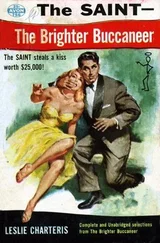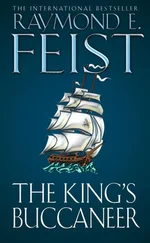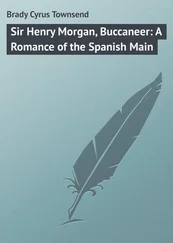Rolf Boldrewood - A Modern Buccaneer
Здесь есть возможность читать онлайн «Rolf Boldrewood - A Modern Buccaneer» — ознакомительный отрывок электронной книги совершенно бесплатно, а после прочтения отрывка купить полную версию. В некоторых случаях можно слушать аудио, скачать через торрент в формате fb2 и присутствует краткое содержание. ISBN: , Жанр: foreign_antique, foreign_prose, на английском языке. Описание произведения, (предисловие) а так же отзывы посетителей доступны на портале библиотеки ЛибКат.
- Название:A Modern Buccaneer
- Автор:
- Жанр:
- Год:неизвестен
- ISBN:http://www.gutenberg.org/ebooks/35431
- Рейтинг книги:3 / 5. Голосов: 1
-
Избранное:Добавить в избранное
- Отзывы:
-
Ваша оценка:
- 60
- 1
- 2
- 3
- 4
- 5
A Modern Buccaneer: краткое содержание, описание и аннотация
Предлагаем к чтению аннотацию, описание, краткое содержание или предисловие (зависит от того, что написал сам автор книги «A Modern Buccaneer»). Если вы не нашли необходимую информацию о книге — напишите в комментариях, мы постараемся отыскать её.
A Modern Buccaneer — читать онлайн ознакомительный отрывок
Ниже представлен текст книги, разбитый по страницам. Система сохранения места последней прочитанной страницы, позволяет с удобством читать онлайн бесплатно книгу «A Modern Buccaneer», без необходимости каждый раз заново искать на чём Вы остановились. Поставьте закладку, и сможете в любой момент перейти на страницу, на которой закончили чтение.
Интервал:
Закладка:
Captain Hayston was below, and the Chinese steward conducted me into his presence. He looked at me steadily for a moment, as if trying to recall where he had seen me before, and then after my few words of explanation, gave me a hearty welcome to the South Seas.
Having told him how I came to visit Samoa, I offered him my yams, which he gladly purchased, paying me a good price for them in United States gold coin. This transaction being concluded, he asked me to meet him next day, when we could have a good long chat, at the same time desiring me to keep secret the fact of our previous meeting. What his reasons were I never knew; but as he seemed anxious on this matter, I told him that I had seldom mentioned the circumstance, and to no one in Samoa, with the exception of my mate Tuluia. I had indeed made few other acquaintances.
Although I should much have liked to have had a look round the brig, I could see the Captain wished to get on shore, so after shaking hands with him I returned to our cutter, where, in a few minutes, the brig's longboat came alongside, and we set to work getting out the yams. Hayston paid me without demanding to have them weighed, and George's dark face was wreathed in smiles when I showed him the money. He explained that two tons were very bad, and had they been seen by a purchaser would have been rejected.
Although only a Kanaka, George possessed true commercial instincts, and I felt sure he would grow rich.
The native war was now at its height, and the lines of the hostile party were so close to Matautu, the eastern part of Apia, that bullets were whistling over our heads all day long. The yam season being over, and the copra trade at a standstill, we gave up the cutter and settled for a while on shore. It was during this period that I was a constant visitor at the house of Mr. Lewis, the American Consul, where I generally found Hayston in company with Captain Edward Hamilton, the pilot, and another American, a whisky-loving, kava-drinking old salt, brimful of fun and good humour. He had been twenty years in Samoa, and was one of the best linguists I ever met with; was known to every native in the group, and had been several trips with Hayston to the north-west islands. He followed no known occupation, but devoted his time to idling and attending native dances.
Many a merry evening we spent together while the Leonora was recruiting, and I began to think Hayston was the most entertaining man I had ever met. He made no secret of some of his exploits, and in particular referred to the way in which he had beaten a certain German firm in the way of business, even breaking up their stations in the Line Islands. At that time these merchants had acquired a bad name for the underhand manner in which they had treated English and American traders; and for any man to gain an advantage over them was looked upon as a meritorious action.
By many people who cherished animosity against Hayston I had been led at first to look upon him as a thorough-going pirate and a bloodthirsty ruffian. Yet here I found him, if not respected, at least deemed a fit associate for respectable men. Moreover, his word was considered as good security in business as another man's bond. I well remember the days when he used to visit me at Leliepa, and we amused ourselves with pistol practice. He was a wonderful shot, and his skill excited the loud applause of the native chiefs. One fat old fellow, known as Pulumakau (the bullock), begged him to spend a day now and then in the lines with the native forces, and exercise his skill upon the enemy.
One day he took me on board with him in order to show me over the brig. He intended to leave in a few days, and I remarked, as we were pulled on board, that I should dearly like to have a trip with him some day.
He was silent for a minute, and then replied, "No! I shall be glad enough of your company as my guest, as I have taken a fancy to you; but it will be better for you to keep clear of me."
When we got on board I was struck with the beautiful order in which the vessel was kept, aloft and below; there was not a rope yarn out of place. Descending to the cabin I found it splendidly furnished for a vessel of her size.
The Leonora was 250 tons register, and had been built for the opium trade. During her career in Chinese seas she acquired the reputation of being the fastest vessel on the coast. She then carried eight guns. She had been several times attacked by pirates, who were invariably beaten off with loss. At the time of my visit she carried but one gun, which stood on the main deck, Hayston having sold two others of the same calibre to the natives. But for this, as far as I could see, she had a most peaceful appearance.
On the main deck, just abaft the foc'sle, was a deckhouse divided into compartments, forming the cook's galley and boats' crews' quarters, together with those belonging to the first and second mates. On the top of the house a whale-boat was carried, leaving room for two sentries to keep guard, a precaution which I afterwards found was, on certain occasions, highly necessary for the vessel's safety. The foc'sle was large, for she carried between twenty-five and thirty men. The thing that struck me most, however, was the bulkhead, which was loop-holed for rifles, so that if any disturbance took place in the forehold, which was sometimes filled with Kanaka labourers, the rebels could be shot down with ease and accuracy.
The most noticeable things about the gear were the topsails she carried, Cunningham's patent, in which there were no reef points. The topsail yards revolved, so that you could reef as much as you liked, and all the work could be done from the main deck by the down haul. Many captains dislike this patent, but it behaved splendidly on the Leonora for all that.
The crew, or most of them, were ashore, and only the second mate, the Chinese carpenter, the steward, and ship's boys were on board. The mate was a muscular Fijian half-caste named Bill Hicks, known as a fighting man all over Polynesia. A native girl, called Liva, was sitting on the main hatch making a bowl of kava.
"Halloa! Liva," said the Captain, as we passed along the deck, "I thought you were married to one of the Dutch clerks at Goddeffroy's?"
"Avoe, lava, alii." "Quite true, Captain, but I've come to stay with Bill for a week."
The Captain and second mate laughed, and next day I learned that Bill had gone to the clerk's house at Matafele, the German quarter of the town, and though there were other Germans present, told Liva to pack up her clothes and come with him. She, nothing loth, did as he told her, and the Germans, seeing mischief in the half-caste's eye, offered no opposition.
The departure of the Leonora took place a few days afterwards, and I accepted the position of supercargo in a ketch which the junior partner of one of the principal firms in Samoa wished to send to the Marshalls to be sold. I expressed my doubts of her sea-worthiness for so long a voyage. However, he said there was no danger, as it would be a fine weather passage all the way through, adding that the king of Arnu, or Arrowsmith's Island, had commissioned Captain Hayston to buy a vessel for him in Samoa.
I thought his proposition over, and next day stated my willingness to undertake the venture, the owners promising to put the vessel in repair as soon as possible. She was hauled up to the beach in front of the British consulate, where for the next few weeks carpenters were at work, patching up and covering her rotten bottom with a thick coating of chunam. Notwithstanding these precautions no one except old Tapoleni, the Dutch skipper, could be induced to take charge of her.
During the time she was on the beach I made a trip to the beautiful village of Tiavea, doing a week's trading and pigeon shooting. On my return I found the town in a high state of excitement owing to a succession of daring robberies of the various stores. Strong suspicions were entertained with respect to a herculean American negro, known as Black Tom, who kept an extremely disorderly hotel where seamen were known to be enticed and robbed.
Читать дальшеИнтервал:
Закладка:
Похожие книги на «A Modern Buccaneer»
Представляем Вашему вниманию похожие книги на «A Modern Buccaneer» списком для выбора. Мы отобрали схожую по названию и смыслу литературу в надежде предоставить читателям больше вариантов отыскать новые, интересные, ещё непрочитанные произведения.
Обсуждение, отзывы о книге «A Modern Buccaneer» и просто собственные мнения читателей. Оставьте ваши комментарии, напишите, что Вы думаете о произведении, его смысле или главных героях. Укажите что конкретно понравилось, а что нет, и почему Вы так считаете.












